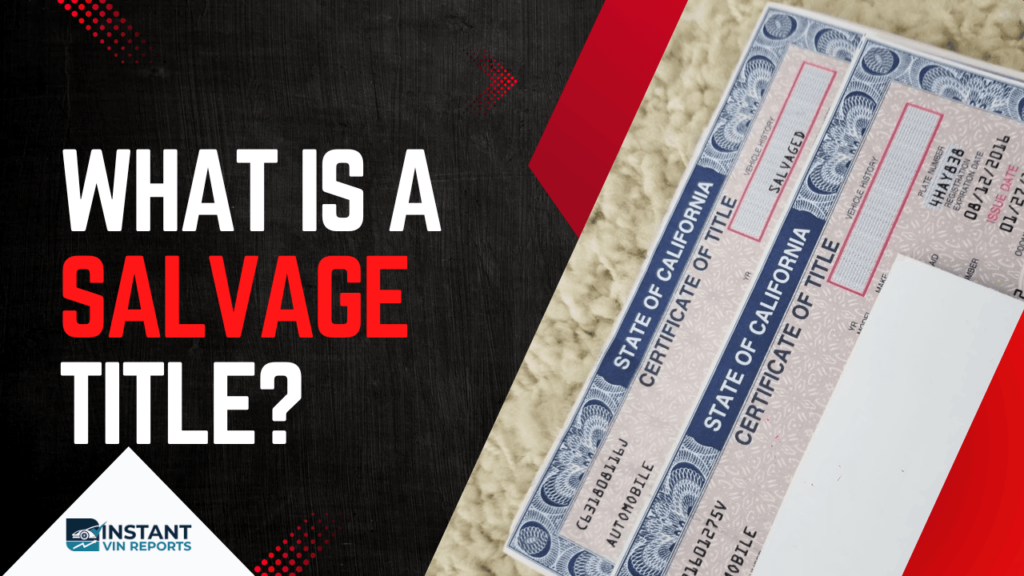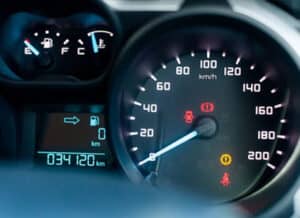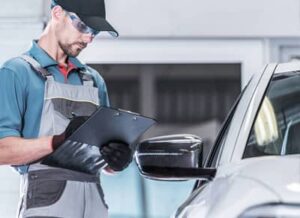When shopping for a used car, understanding the significance of a salvage title is crucial. Salvage titles indicate that a vehicle has been severely damaged and written off by an insurance company, but this doesn’t automatically make it unsuitable for purchase. Buyers must be aware of the risks, benefits, and process of buying a salvage title vehicle to make an informed decision.
What is a Salvage Title?
A salvage title is given to a vehicle that has been significantly damaged, usually due to an accident, flood, or other incidents. An insurance company has deemed it a total loss. This can happen if the car’s repair cost exceeds a certain percentage of its market value, which varies by state. In contrast to a clean title (which indicates the car has no significant damage) and a rebuilt title (issued after repairs are made to a salvage vehicle), a salvage title represents a car that may not be roadworthy without significant maintenance.
A vehicle can receive a salvage title for several reasons, including:
- Accident Damage: A collision or crash that causes structural or mechanical damage.
- Flood Damage: Cars submerged in water are at risk of rust and electrical damage.
- Theft Recovery: When a stolen vehicle is recovered but damaged beyond repair.
- Vandalism: Instances where the vehicle has sustained damage render it a total loss.
While these vehicles may not be destroyed, they often require significant repairs and inspections before they are considered safe for use on the road.
Read also: The difference between Salvage and Rebuilt Title?
How a Vehicle Receives a Salvage Title?
The process for a vehicle receiving a salvage title involves several key steps, typically initiated when the insurance company determines that the repair cost exceeds a set threshold. Here’s how the process unfolds:
Insurance Company Evaluations
After a vehicle is involved in an accident, the car owner files a claim with their insurance company. The insurance company will evaluate the car’s damage, including the cost of repairs. If the repair cost exceeds a certain percentage of the vehicle’s value, which varies by state (usually between 50% and 75%), the car is deemed a total loss and given a salvage title.
Criteria for Totaling a Vehicle
Each state has criteria for determining when a vehicle is considered a total loss. These criteria are usually based on the cost of repairs and the vehicle’s market value. For instance, if a car’s repair costs are 70% of its value, it may be declared a total loss and receive a salvage title. Other factors, such as the extent of the damage (e.g., frame damage or airbags deployed), can also play a role.
Read also: What is a Rebuilt Title?
Different State Regulations and Their Impact
Salvage title regulations differ from state to state. For example, in some states, a vehicle may receive a salvage title after being damaged by flooding. In contrast, flood-damaged cars may not be eligible for a salvage title in others. Additionally, the percentage at which a car is considered a total loss varies by state, meaning the threshold for receiving a salvage title can differ depending on where you live.
Implications of Buying a Vehicle with a Salvage Title
While purchasing a vehicle with a salvage title can offer a cheaper price, it’s important to understand the potential risks and drawbacks involved. Here’s what to consider:
Insurance Challenges
One of the biggest challenges of purchasing a salvage title vehicle is obtaining insurance. Many insurance companies are reluctant to provide full coverage for salvage cars, and some may not offer any coverage. Comprehensive and collision coverage helps pay for repairs if your vehicle is damaged or unavailable, leaving you with only liability coverage. This is important to remember when assessing the total cost of owning a salvage title vehicle.
Resale Value Concerns
A salvage title significantly lowers a vehicle’s resale value. Even if the car is repaired and roadworthy, potential buyers will be wary of the vehicle’s history. A car with a clean title will almost always fetch a higher price than one with a salvage title, even after repairs. This can make it harder to sell the car in the future, and you might have to accept a lower price than expected.
Safety and Reliability Issues
Salvage vehicles may have undetected structural or mechanical damage that can affect their safety and reliability. Even after repairs, the vehicle may not perform as well as a comparable car with a clean title. Issues like frame damage, airbag deployment, or compromised safety features might not be immediately visible but could pose long-term risks. It’s essential to have a salvage title vehicle thoroughly inspected by a qualified mechanic before purchasing.
Difficulty in Financing
Securing financing for a salvage title vehicle can be more challenging. Many lenders hesitate to offer loans for salvage cars, and if they do, the terms may be less favorable. Buyers may need to pay a higher interest rate or make a larger down payment. In some cases, obtaining financing for a salvage title vehicle may only be possible with proof of repairs or a rebuilt title.
Potential Benefits of Buying a Salvage Title Vehicle
Despite the risks, there can be potential advantages to purchasing a salvage title vehicle. For sure buyers, a salvage title car may offer a good opportunity, especially if they are willing to invest in repairs. Here are some of the benefits:
Lower Purchase Price
The significantly lower purchase price is the most immediate benefit of purchasing a salvage title vehicle. Because the car has been deemed a total loss, it will typically cost much less than a similar vehicle with a clean title. This can be particularly attractive for buyers looking for a bargain or those handy with repairs.
Opportunity for Buyers Willing to Invest in Repairs
If you are a skilled mechanic or have access to affordable repair services, buying a salvage title vehicle could provide an opportunity to restore it to a roadworthy condition. After completing the necessary repairs, you may have a car that performs like new at a fraction of the cost of buying a comparable clean title vehicle.
Possible Appreciation After Repairs
In some cases, a salvage title vehicle that has been adequately repaired and restored may be appreciated, especially if it is rare or classic. Once the car has passed inspections and is granted a rebuilt title, it may be eligible for resale at a higher price than what you paid initially, mainly if it’s in good condition and has a strong demand.
How to Rebuild a Salvage Title Vehicle
Rebuilding a salvage title vehicle involves restoring the car to a roadworthy condition and obtaining a rebuilt title. Here’s how the process works:
Necessary Repairs and Inspections
The first step in rebuilding a salvage vehicle is completing all necessary repairs. This may include fixing structural damage, replacing parts, and addressing safety concerns. Once the repairs are made, the car must pass a thorough inspection, which is required in many states. The inspection will verify that the vehicle is safe to drive and that all necessary repairs have been made.
Documentation Required
You must provide documentation showing the vehicle’s repair history to apply for a rebuilt title. This may include receipts for parts, labor invoices, and a detailed work description. You may also need to submit the car’s original salvage title, proof of insurance, and any other state-specific documents.
Process of Applying for a Rebuilt Title
Once the vehicle passes inspection and all documentation is submitted, you can apply for a rebuilt title. The state will evaluate the application, and if everything is in order, they will issue a rebuilt title, allowing the vehicle to be legally driven again.

How to Evaluate a Salvage Title Car?
Before buying a salvage title vehicle, performing a thorough evaluation is essential to ensure you are making a sound investment. Here are some steps to take:
Checking the Vehicle History Report
A vehicle history report is crucial when considering a salvage title vehicle. It will provide details about the car’s previous owners, accidents, flood damage, and other essential information. This report can help you understand the extent of the damage and whether the vehicle has been repaired properly.
Inspecting for Quality of Repairs
If the car has been repaired, it’s important to inspect the quality of the work done. Look for signs of poor repairs, such as mismatched paint, uneven body panels, or unprofessional welding. Have a qualified mechanic perform a pre-purchase inspection to check for hidden issues, if possible.
Consulting with Mechanics
If you’re unsure about the vehicle’s condition, consulting a mechanic specializing in salvage vehicles can provide expert insights. A mechanic can assess the car is worth the investment and advise on potential future issues.
Conclusion
Purchasing a vehicle with a salvage title comes with both risks and rewards. While you may be able to buy the vehicle for a lower price and have the opportunity to repair and resell it, you also face potential challenges such as insurance issues, safety concerns, and difficulties in financing. To make an informed decision, it’s crucial to evaluate the car’s history with a vehicle history report, inspect the repairs, and consider your long-term goals as a car owner.
Frequently Asked Questions About Salvage Titles
Can I Insure a Salvage Title Vehicle?
Insuring a salvage title vehicle is possible, but your coverage options may be limited. Many insurance companies offer only liability coverage, and comprehensive or collision coverage might be unavailable.
How Does a Salvage Title Affect Resale Value?
A salvage title significantly reduces a vehicle’s resale value. Even if the car is repaired and in good condition, potential buyers may be hesitant due to its history.
What Should I Know Before Purchasing a Salvage Title Vehicle?
Before purchasing a salvage title vehicle, ensure you understand the vehicle’s history, inspect the quality of repairs, and consider the challenges related to insurance, financing, and resale value. Always consult a mechanic for a professional opinion on the car’s condition.
Purchasing a vehicle with a salvage title comes with both risks and rewards. While you may be able to buy the vehicle for a lower price and have the opportunity to repair and resell it, you also face potential challenges such as insurance issues, safety concerns, and difficulties in financing. To make an informed decision, it’s crucial to evaluate the car’s history, inspect the repairs, and consider your long-term goals as a car owner.










